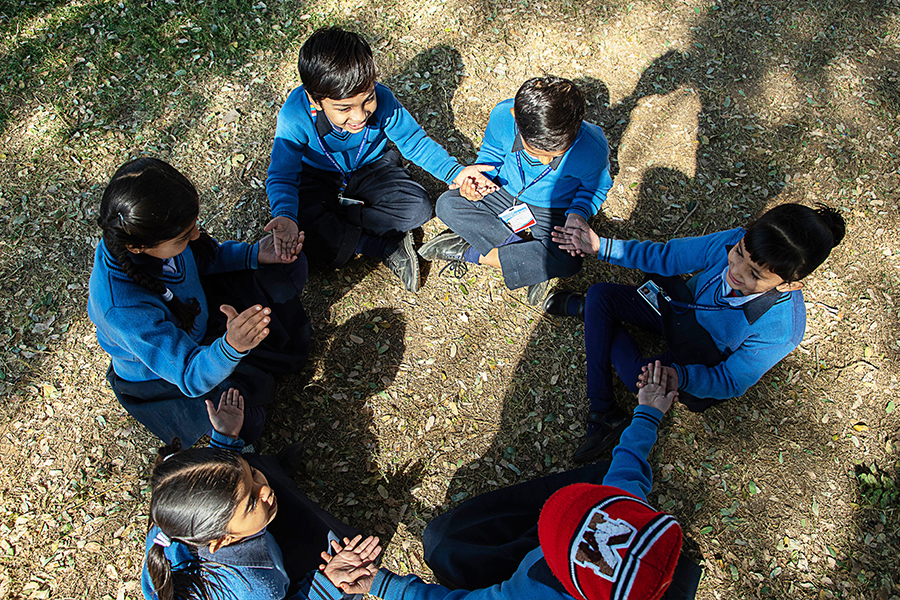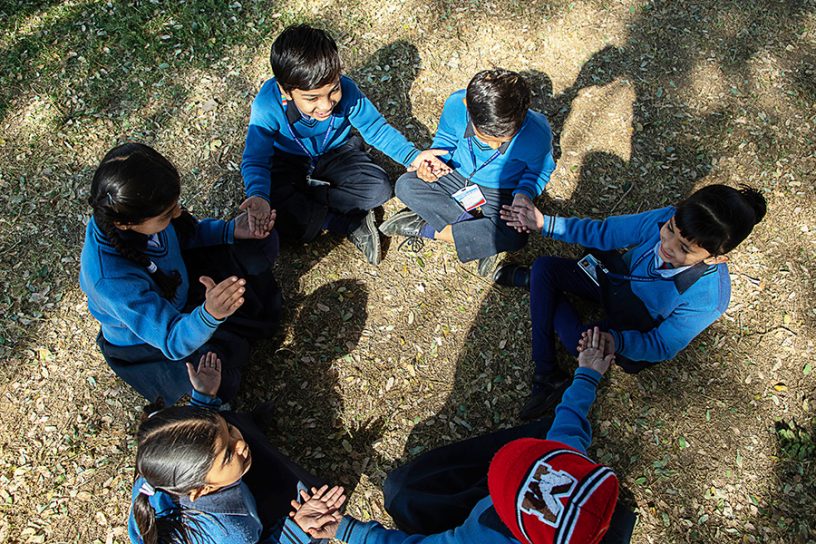
Children’s play motives do not subside when they enter school, rather play takes a more mature form and represents a strong linkage between their thought and reality, says the paper.
Author
Prachi Vashishtha, Associate Professor, Jindal School of Psychology and Counselling, O.P. Jindal Global University, Sonipat, Haryana, India.
Summary
Entry of children to primary schools in India marks a sudden shift in the pedagogical approach as play-based pedagogy gives way to formal instruction. This paper argues that children’s play motives do not subside when they enter school, rather play takes a more mature form and represents a strong linkage between their thought and reality.
The recently introduced National Education Policy 2020 in India mandates a large-scale achievement survey at the age of 8, the fear is that this will lead to formalisation and academisation of early schooling.
The paper presents a case study of a school in rural India that follows a play-based pedagogy in the primary years. The study uses dialectical-interactive approach for data collection and analysis.
The analysis shows that play creates a pedagogic opportunity for the teacher and children to engage with each other’s motives thus creating a shared ‘object of activity’ that ensures children’s motivated engagement in their learning.
Published in: Early Years
To read the full article, please click here.


